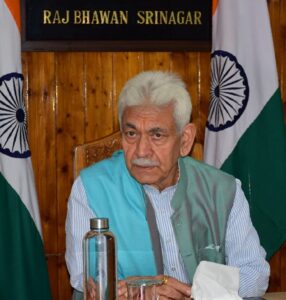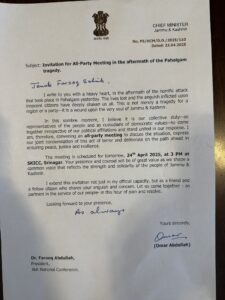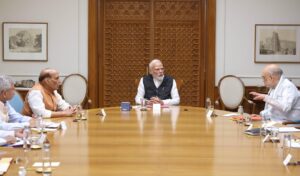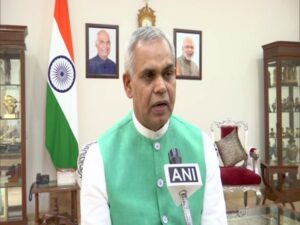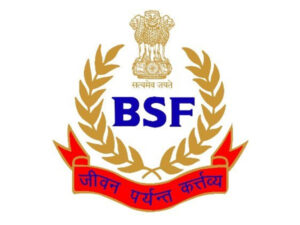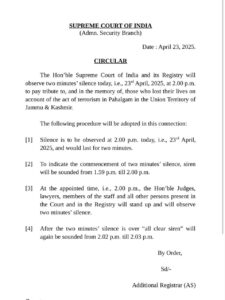PFI case: Delhi Court sends Sahul Hameed, arrested from Madurai, to ED remand for 10 days
New Delhi [India], June 9 (ANI): The Patiala House Court of Delhi has sent Sahul Hameed, arrested by the Enforcement Directorate from Madurai, to remand for 10 days in connection with a money laundering probe against banned organisation Popular Front of India (PFI).
According to the Enforcement Directorate (ED) the accused was earlier in the process of collecting illegal money/terror funds from legitimate and illegitimate channels from Singapore and other places. He was stated to have been deported to India and upon receipt of inputs, he was intercepted and could not give an account of certain activities taken by him towards collecting funds for the PFI.
The Enforcement Directorate was represented by Special Public Prosecutor (SPP) Naveen Kumar Matta alongwith Advocate Mohd Faizan Khan in the matter.
ED counsels informed the Court that statement of the accused under Section 50 of the Prevention of Money Laundering Act (PMLA)was also recorded wherein he remained evasive in giving answers to certain material aspects collected during the investigation. Therefore ED arrested the accused.
The Additional Session’s Judge Shailender Malik in an order passed on Thursday said, taking into consideration the totality of facts and the fact that since the accused has been non-cooperative in the investigation until now for enabling the ED to collect all relevant evidence, police custody of accused Sahul Hameed is given for 10 days.
Recently, the same court took cognizance of a chargesheet (Prosecution Complaint) filed by the Enforcement Directorate against several office bearers of Popular Front of India (PFI) in a special court in Delhi.
The court noted that funds were used for the purpose of unlawful activities, inciting violence, which was allegedly held in North East Delhi in February 2020.
According to the ED, the accused persons have revealed that they have played an active role in bogus cash donations on behalf of PFI and in claiming and projecting PFI’s unaccounted cash raised through unknown and suspicious sources as untainted and legitimate.
ED stated that the PMLA investigation has revealed that as a part of a criminal conspiracy hatched by PFI office bearers over the past many years, suspicious funds from within the country and abroad have been raised by PFI and related entities and have been clandestinely remitted to India in a concealed manner and deposited in their bank accounts over the years.
In March month this year, the Unlawful Activities (Prevention) Act (UAPA) Tribunal upheld the decision of the Centre Government decision to ban Popular Front of India and its affiliates.
The Tribunal has dismissed the allegations levelled by the organisation that the government is targeting one particular community. While passing the Judgement, the Tribunal noted that the members of PFI and its affiliates are indulging in secessionist activities contrary to the country’s social fabric.
In September last year, the Ministry of Home Affairs declared the Popular Front of India (PFI) and its affiliates as an ‘Unlawful Association’
The press statement issued in this regard stated that the Popular Front of India (PFI) and its associates or affiliates or fronts have been found to be involved in serious offences, including terrorism and its financing, targeted gruesome killings, disregarding the constitutional set-up of the country, disturbing public order etc. which are prejudicial to the integrity, security and sovereignty of the country.
Therefore, the Ministry of Home Affairs found it necessary to curb the nefarious activities of the organization and has hence declared the Popular Front of India (PFI) along with its associates or affiliates or fronts including Rehab India Foundation (RIF), Campus Front of India (CFI), All India Imams Council (AIIC), National Confederation of Human Rights Organization (NCHRO), National Women’s Front, Junior Front, Empower India Foundation and Rehab Foundation, Kerala as an “unlawful association” under the provisions of the Unlawful Activities (Prevention) Act, 1967.

